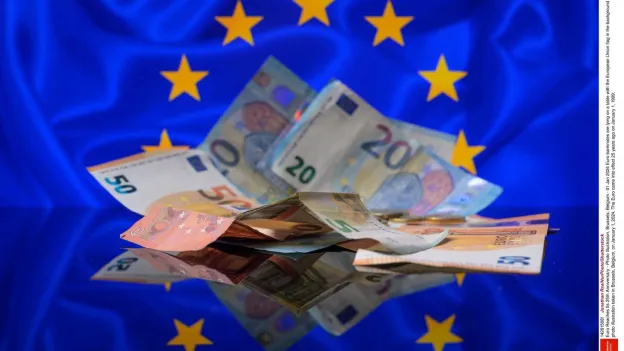
European Court of Auditors: Incorrect EU Spending Continues to Rise

luxembourg - The European Court of Auditors warns about the increasing trend of incorrect spending by the European Union for the third consecutive year.
The Court must once again give a negative assessment of the €191 billion in expenditures. The watchdog must conclude that the error rate increases each year. In 2021, it was 3 percent, in 2022 it grew to 4.2 percent, and last year it rose to 5.6 percent.
This money is not spent in accordance with EU rules, not due to fraud. The watchdog also encountered twenty cases of suspected fraud. These have been reported to the European Public Prosecutor's Office and the fraud fighter OLAF.
'I am shocked,' reacts Dutch Court of Audit member Stef Blok. 'We cannot take this lightly.'
Especially in expenditures from the Cohesion Fund, mistakes were frequent. Billions in subsidies are provided to less prosperous member states from this fund. ERK member Stef Blok sees time pressure as one of the reasons for more errors. 'The opportunity to spend the money expired,' explains the former VVD minister. He says Brussels must intervene: 'Incorrectly transferred funds must be repaid.'
The EU budget is coming under increasing pressure. Brussels is borrowing excessively: the EU debt has increased from €348 billion in 2022 to €458.5 billion in 2023. Most of the money is for the coronavirus recovery fund, which the Netherlands was not in favor of.
'There is still no agreement on repayment,' Blok concludes. 'It was agreed that the European Commission would come up with proposals for own resources (including taxes). The proposals are there, but there is no agreement.'
Brussels has also seriously miscalculated the rising interest costs. The Commission assumed 0 percent interest. The shortfall is estimated to be at least €14 billion, but it is likely to reach a staggering amount between €17 and €27 billion for the period until the end of 2027.
The coronavirus recovery fund will expire in 2026, and a significant portion of the requests from the subsidy pot remains unpaid. Blok warns of the risk of time pressure, as with the Cohesion Fund.
'It is not desirable for a country to have money sitting idle. This creates the risk of various projects being presented that do not meet the criteria,' says Blok. 'It is up to the European Commission to prevent that. The Commission does indeed scrutinize very strictly. But it can be uncomfortable for both member states and the Commission. So this will require a very strong backbone from many people.'
SGP MEP Bert-Jan Ruissen is shocked by the report. He demands that the European Commission come up with an improvement plan: 'This cannot go on. It involves taxpayers' money.' The Brussels debt pile worries him greatly. Ruissen believes that unspent funds from the fund should no longer be spent. 'This should be used for accelerated debt repayment.'


Leave a comment